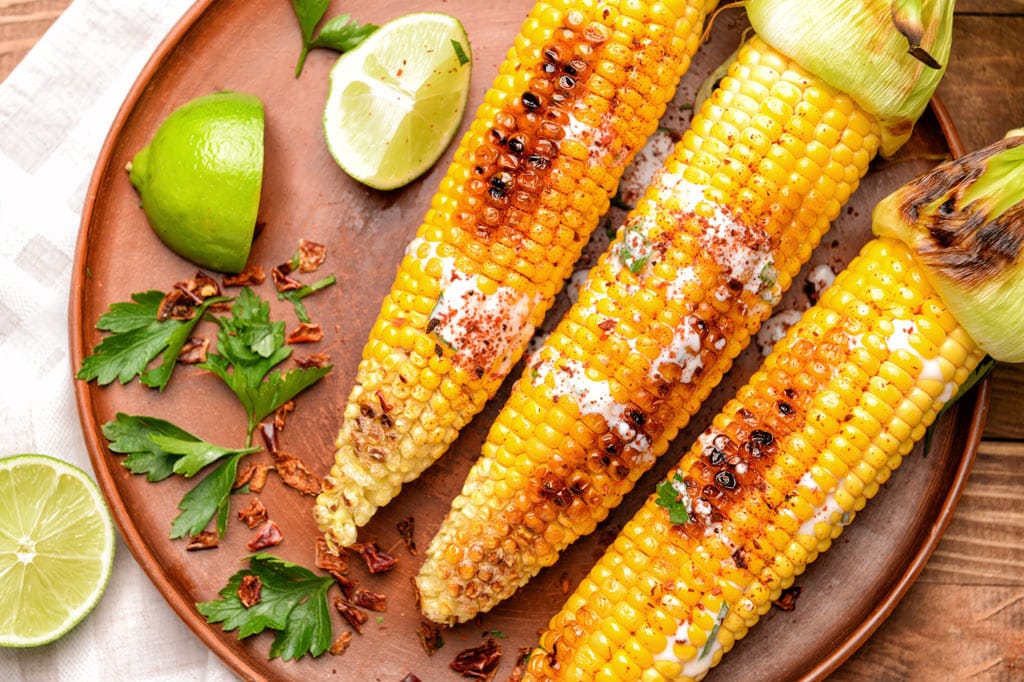Corn is nutrient-dense food that contains many surprising health benefits.
That’s because corn contains many essential vitamins, minerals and antioxidants. In addition to being a rich source of carbohydrates and fiber, corn also contains small amounts of healthy fats. It also is an excellent source of vitamin B6, thiamin and folate, which are important for energy metabolism and red blood cell production.
Corn also has several nutritional benefits stemming from the fact that it contains two kinds of fiber—soluble fiber and insoluble fiber. It also contains resistant starch, a particularly beneficial form of insoluble fiber.
In short, corn is a healthy and delicious part of a well-rounded diet. So, how can all these nutrients brought to you by corn farmers benefit your health? Here are six surprising health benefits of corn to think about while you’re enjoying juicy Nebraska-grown sweet corn or products made from the state’s quality white corn:
1. Corn Is Good to Eat Every Day
Corn can be a healthy addition to your daily diet. It is a rich source of essential nutrients such as vitamin A, vitamin C and dietary fiber. The insoluble fiber in corn can aid in digestion and support regular bowel movements. Corn also contains antioxidants such as zeaxanthin and lutein, which can help prevent age-related eye diseases.
However, as with any food, it’s important to consume corn in moderation and balance it with other nutrient-rich foods to ensure you are getting a variety of vitamins and minerals in your diet.
It’s also important to remember that corn, like any fruit or vegetable, is most beneficial in its unprocessed form. In the case of corn, that means it’s more nutritious when eaten in kernel form than it is after it’s been ground up and turned into processed foods such as breakfast cereals.
2. Corn Is Good for Hair Growth and Health
Corn can contribute to healthy hair growth and maintenance. It contains important vitamins and minerals such as biotin, folate, vitamin C and iron that are essential for hair health. Biotin, also known as vitamin H, is particularly beneficial for promoting hair growth and strength. Folate and vitamin C are important for maintaining healthy collagen levels, which is the protein that forms the structure of hair strands and also benefits your skin. Iron helps carry oxygen to the hair follicles, which is necessary for healthy hair growth.
In addition, corn is also rich in antioxidants that help protect the scalp and hair follicles from damage caused by free radicals. Incorporating corn into your diet can be a delicious and nutritious way to support healthy hair growth and maintenance.

3. Corn Is Good for Lowering the Risk of High Blood Pressure
Corn may play a role in maintaining healthy blood pressure levels. This is due to its high potassium content, which is a mineral that can help reduce the negative effects of sodium on blood pressure. Potassium works as a vasodilator, keeping blood vessels relaxed and open, thus reducing blood pressure.
Adding corn to your diet can also increase your intake of dietary fiber, which has been shown to lower blood pressure levels. Corn is also a low-fat food and contains no cholesterol, making it a healthy option for those with high blood pressure.
Corn also can help regulate how insulin is absorbed and released in your body, which can prevent sudden spikes or drops in your blood sugar.
4. Corn Is Good for High Cholesterol
Corn is an important part of a heart-healthy diet because it’s low in saturated fat, cholesterol and sodium. Corn oil in particular is high in polyunsaturated fat, which contributes to lower LDL (bad) cholesterol levels.
Corn also can help reduce high cholesterol because it contains soluble fiber, which helps lower LDL or “bad” cholesterol levels in the body. It also contains plant sterols, which are compounds that can help block the absorption of cholesterol in the body. In addition to its cholesterol-lowering benefits, corn is also a rich source of antioxidants like zeaxanthin and lutein, which some studies have indicated can benefit heart health.
5. Corn Is Good for Digestive Issues
Corn can be a beneficial food for individuals with digestive issues. Corn is high in insoluble fiber, which can help regulate bowel movements and promote healthy digestion.
Additionally, it contains resistant starch, which acts as a prebiotic to feed beneficial gut bacteria. This can improve gut health and reduce inflammation in the digestive tract.
6. Corn May Help Aid in Weight Loss
Corn can be a helpful food in weight loss efforts. It is a low-fat and low-calorie food that can help you feel full and satisfied without consuming excess calories.
It’s able to keep you feeling full because it’s high in dietary fiber, which can slow down the digestion process and keep you feeling fuller for longer periods of time. This can prevent overeating and reduce the number of calories consumed throughout the day.
Additionally, corn is a good source of complex carbohydrates, which help provide sustained energy levels throughout the day.




